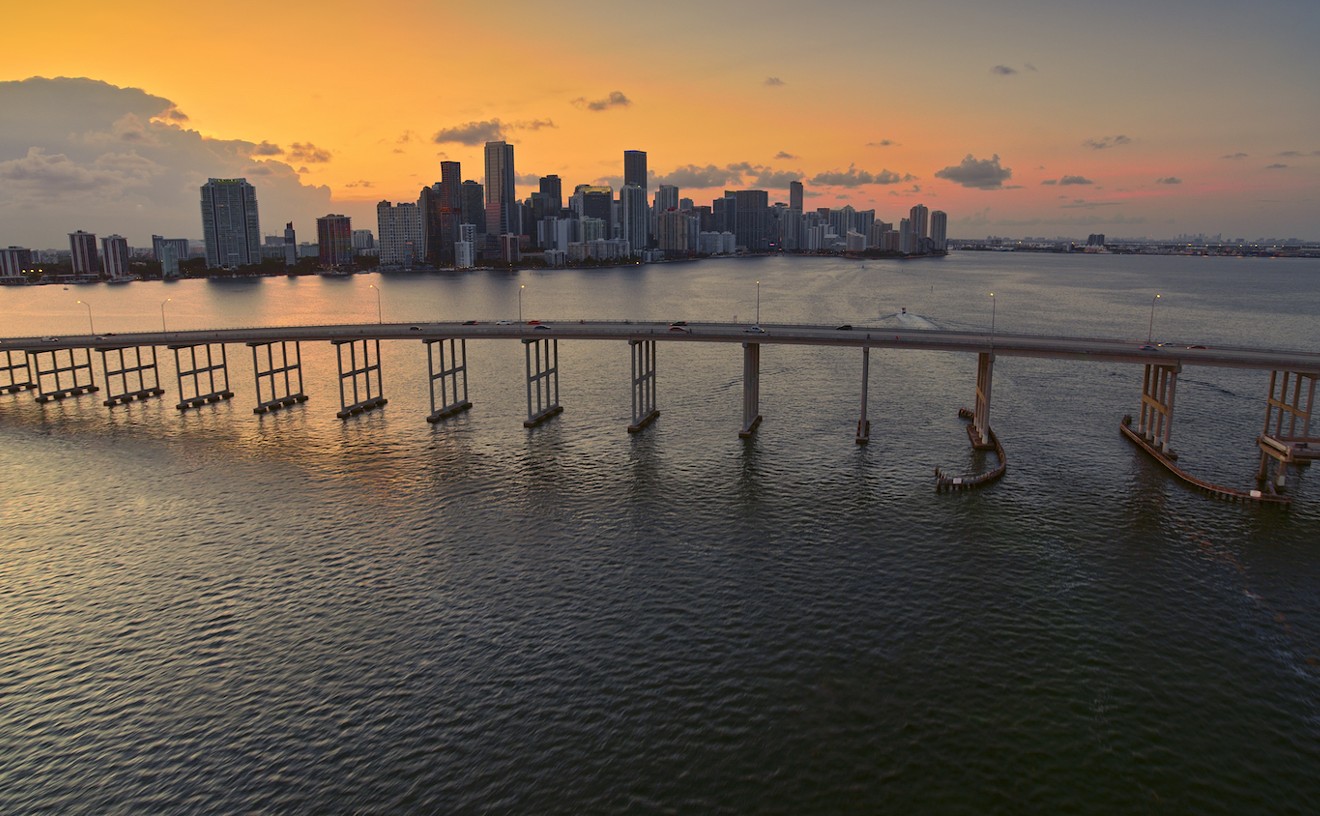Update: The City of Miami's Urban Development Review Board deferred voting on the proposal until January after "vehement neighborhood opposition," according to the Real Deal South Florida.
Land developers are all but salivating to sink their teeth into the rich, fatty, unblemished flesh that is Little Haiti real estate. The Wynwood gentrification fight is over — the only people who can afford land there now are the sort who maintain Cayman Islands bank accounts, and scores of tall luxury apartments are headed to that neighborhood.
So the development battle has edged ever northward, into the historically black and historically poor Little Haiti. And now one of the largest development proposals in the neighborhood's history has been pitched to the City of Miami in a move that is certain to upset anti-gentrification activists.
SPV Realty, a New York real-estate firm that has been sued twice for allegedly refusing to rent apartments to black people in Miami, has proposed building luxury condo towers as tall as 28 stories in the heart of the neighborhood, at the corner of NE 50th Street and NE Second Avenue. SPV is asking the city to approve a change to the area's zoning code to allow those towers to shoot skyward. The city's Urban Design Review Committee will discuss the proposal at its 2 p.m. meeting today.
If that committee approves the plan, the city's Planning Board will then have to approve the project.
News of the application comes mere weeks after developer Tony Cho and investor Bob Zangrillo pitched their full plans for Magic City Studios, a 45,000-square-foot "innovation district" ten blocks north, at NE 60th Street and NE Second Avenue. But SPV's proposal dwarfs even Cho's plans.
Kobi Karp, the project's
"People in the community, and city staff, asked us to improve the circulation of traffic, improve public space, provide a civic space that the community and neighborhood could use, such as an open air market where neighbors can go buy fruits, vegetables and/or flowers in a public space and plaza," Karp says. "We have provided acres and acres in the overall master plan and the new central plaza area."
SPV owns Design Place Miami, a gated rental community on NE Second Avenue, near Churchill's Pub and Chef Creole. The apartments have some of the worst Yelp reviews in Miami's real-estate market because of alleged bug infestations and unresponsive management. Instead of fixing the complex's issues, SPV is proposing razing the property and building a sprawling luxury complex called Eastside Ridge.
According to a development plan the company sent the city, the massive new complex would include 2,798 apartments, 418 hotel rooms, 283,798 square feet of retail space, 97,103 square feet of office space, and more than 4,600 parking spaces. The courtyard would be open to the public and include a large central green space:
Eastside Ridge would also boast large areas for "civic space" and local gatherings, as well as space for small hotels. SPV would build infrastructure to possibly link up
Design Place's buildings cut off multiple roads — such as NE Third and Fourth Avenues and many of the nearby east-west roads — from main thoroughfares in the neighborhood. The new complex would link many of the roads that have been blocked for decades.
But it's undeniable that the project represents a massive departure for the neighborhood. For example, the regulating plan that the city's Urban Review Committee will discuss today mentions that Eastside Ridge will include space for a "green market," and the complex will mandate that the market
Per the complex's Urban Review application:
Only handmade crafts, live plants and flowers, fresh fruits and vegetables, honey and pollen products, cheeses, jams and jellies, baked goods, prepared foods and drinks derived from fresh fruits and vegetables, soaps, and candles may be sold on any outdoor green market within this district.Likewise, Karp mentions the new spaces could include shops such as "yoga studios, spin classes, or dog-grooming facilities," all hallmarks of upper-crust, Brooklyn-style gentrification. The project's glittering façade also looks next to nothing like buildings on the surrounding streets, which mostly include mom-and-pop supermarkets, laundromats, and lower-income apartments.
But Karp, however, says the project is designed to be "affordable, cost-efficient housing at market price" for people "who currently work and live in the community," such as "policemen, firemen, teachers, or even the architects in [his] office."
"Over in Sunset Harbour, you can go to Panther Coffee, a yoga box, a spin class," he says. "We're looking to provide the same services for the local community, whether it’s Haitian, Latin American... [people] who've always lived there, anyone. There are always some folks who will be concerned, but we had outreach for more than a year."
There have long been concerns, however, that SPV's rental policies have been hostile toward people of color, particularly black people. In 2012, the HOPE Fair Housing Center sued SPV, alleging Design Place denied black applications and instead boosted white ones. HOPE sent six people — three white and three black — to SPV in a sting. HOPE says the white people were shown apartments, but the black applicants were told there were no vacancies. (SPV maintained the allegations were false.)
In January 2013, a federal judge ordered SPV to place copies of the Fair Housing Act inside Design Place and stop using advertisements with only white people in them. HOPE and SPV also reached a settlement wherein the company agreed to donate to charity and advertise the apartments in African-American publications.
But SPV allegedly didn't learn its lesson. HOPE says the realty company never upheld its end of the bargain. Plus, HOPE conducted
Here are copies of the documents SPV sent to the city:
Correction: This article previously quoted an incorrect report, which said the project had been voted down. The project was instead deferred until January.











